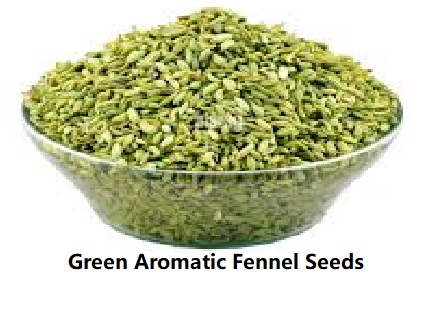
Navigating Fennel Seeds Export from India: Quality Standards, Certification, and Documentation Requirements (EXIM Code: 09096230)
In recent years, Fennel seeds have emerged as a significant export commodity for India, with a growing demand in international markets owing to their versatile applications in culinary, medicinal, and cosmetic industries. To facilitate seamless export operations, understanding the quality standards, certification processes, and documentation requirements is paramount. In this article, we delve into the intricacies of exporting Fennel seeds from India, focusing on the EXIM code 09096230.
About Fennel Seeds (EXIM Code: 09096230)
Fennel seeds, scientifically known as Foeniculum vulgare, are commonly used as a spice and flavoring agent in various cuisines worldwide. India stands as one of the leading producers and exporters of Fennel seeds, owing to its conducive climate and favorable agroecological conditions for cultivation.
Quality Standards for Fennel Seeds Export
Maintaining stringent quality standards is imperative to ensure the competitiveness of Indian Fennel seeds in the global market. The following quality parameters are crucial for export:
Purity: Fennel seeds should be free from any foreign matter, such as stones, dust, or other seeds.
Color and Appearance: The seeds should exhibit a characteristic greenish-brown color with a glossy appearance.
Aroma and Flavor: Fennel seeds should possess a distinct aroma and flavor, indicative of their freshness and quality.
Moisture Content: The moisture content in Fennel seeds should be within permissible limits to prevent microbial growth and ensure shelf stability.
Certification Requirements
Exporters of Fennel seeds are required to obtain various certifications to demonstrate compliance with international quality and safety standards. Some of the essential certifications include:
ISO Certification: ISO 9001:2015 certification for quality management systems is often sought by exporters to ensure consistent quality across production processes.
HACCP Certification: Hazard Analysis and Critical Control Points (HACCP) certification is essential for ensuring food safety and preventing contamination risks during processing and packaging.
Organic Certification: With the growing demand for organic products, obtaining organic certification from accredited agencies certifies that Fennel seeds are grown and processed without the use of synthetic chemicals or pesticides.
Phytosanitary Certificate: A phytosanitary certificate issued by the Plant Quarantine Authority verifies that Fennel seeds comply with the phytosanitary requirements of the importing country, ensuring freedom from pests and diseases.
Documentation Requirements
In addition to certifications, exporters must fulfill documentation requirements mandated by Indian customs and regulatory authorities. Key documents include:
Commercial Invoice: A detailed commercial invoice specifying the quantity, value, and description of Fennel seeds being exported.
Packing List: A packing list enumerating the contents of each package, including net and gross weights, packaging dimensions, and markings.
Certificate of Origin: A certificate of origin issued by the relevant chamber of commerce or authorized agency, confirming the country of origin of the Fennel seeds.
Bill of Lading/Airway Bill: A bill of lading for sea shipments or an airway bill for air shipments, serving as a contract of carriage and a receipt of goods from the carrier.
Phytosanitary Certificate: As mentioned earlier, a phytosanitary certificate issued by the Plant Quarantine Authority is essential for demonstrating compliance with plant health regulations.
Exporting Fennel seeds from India offers lucrative opportunities for businesses to tap into the burgeoning global market. By adhering to stringent quality standards, obtaining necessary certifications, and fulfilling documentation requirements, exporters can ensure the seamless flow of Fennel seeds to international destinations, thereby bolstering India’s position as a leading supplier of this aromatic spice.
